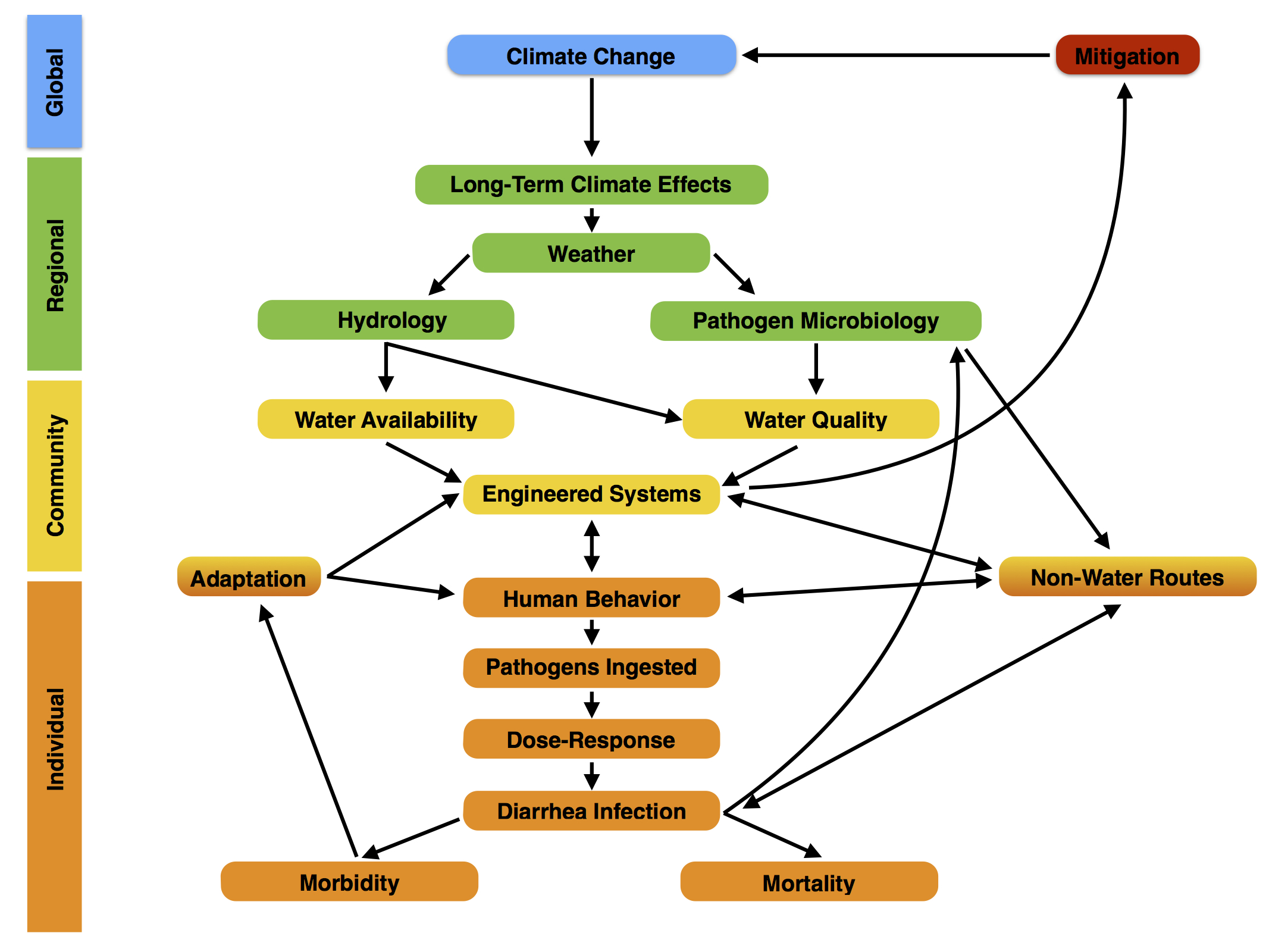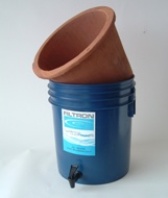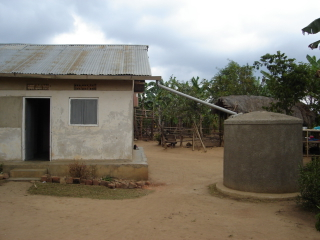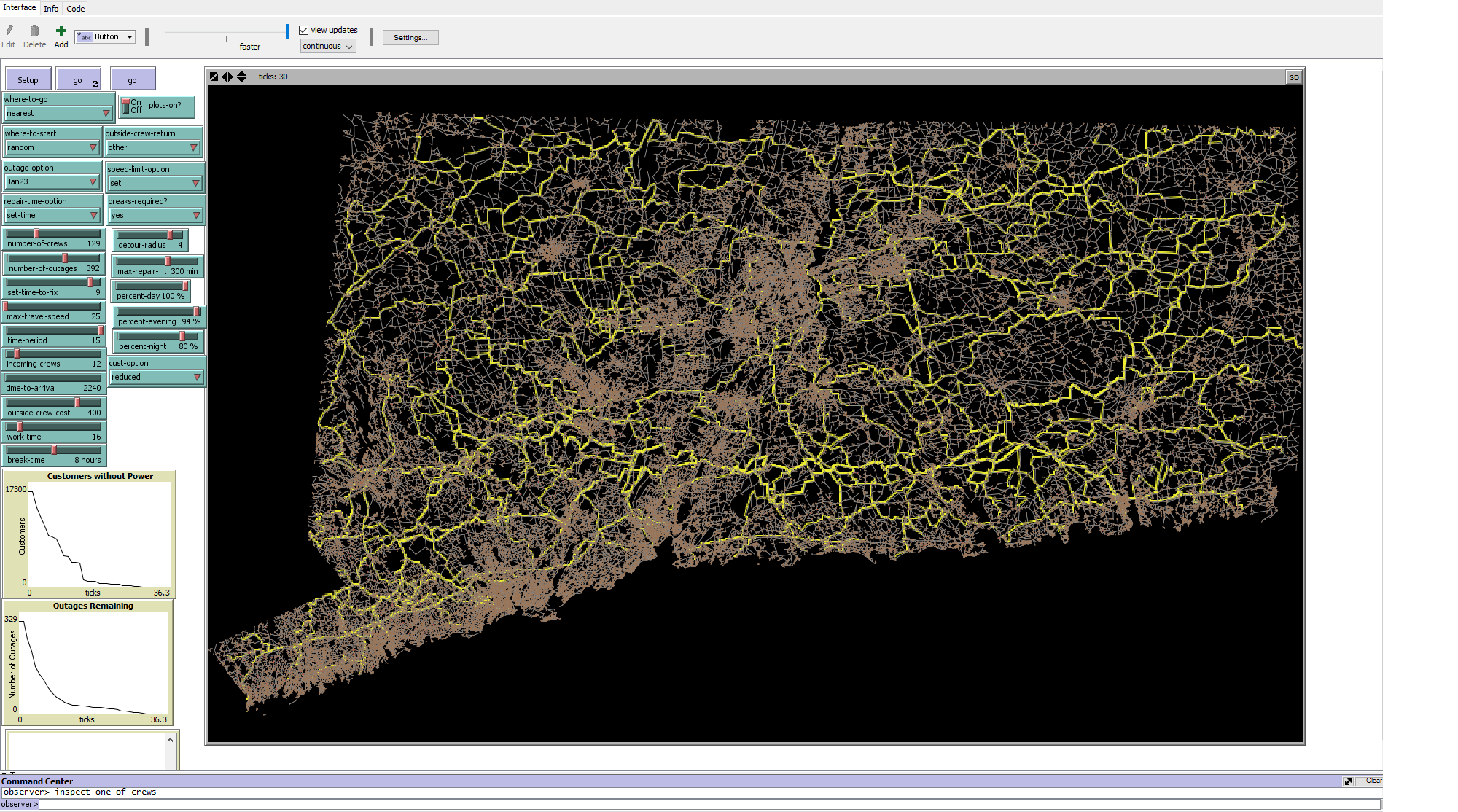- Homepage
- >
- Research
Research
 A number of studies have predicted that climate change will increase incidence of diarrheal diseases. However, studies done to date have limited predictive power and have little ability to help improve the resiliency of resource-limited communities. In the IWR, we are developing systems-based mechanistic frameworks to predict disease incidence in the future and design adaptation strategies to help communities increase their resiliency.
A number of studies have predicted that climate change will increase incidence of diarrheal diseases. However, studies done to date have limited predictive power and have little ability to help improve the resiliency of resource-limited communities. In the IWR, we are developing systems-based mechanistic frameworks to predict disease incidence in the future and design adaptation strategies to help communities increase their resiliency.
 Ceramic water filters are a sustainable, low-cost and effective means of water purification for those without access to clean drinking water. Despite this promise, recent research has indicated that they do not perform as well in the long term. In the IWR we are working to better understand the causes and effects of this declining performance. We are also striving to understand how such water filters can help to mitigate the changes in water quality predicted under future climates.
Ceramic water filters are a sustainable, low-cost and effective means of water purification for those without access to clean drinking water. Despite this promise, recent research has indicated that they do not perform as well in the long term. In the IWR we are working to better understand the causes and effects of this declining performance. We are also striving to understand how such water filters can help to mitigate the changes in water quality predicted under future climates.
 Rainwater harvesting is a simple, low-cost means of helping households in developing countries have access to water at their home. It could also be a means of helping households cope with the increase precipitation variability that is associated with global warming. As such, we are studying how household rainwater harvesting can help communities increase their resiliency under future climates.
Rainwater harvesting is a simple, low-cost means of helping households in developing countries have access to water at their home. It could also be a means of helping households cope with the increase precipitation variability that is associated with global warming. As such, we are studying how household rainwater harvesting can help communities increase their resiliency under future climates.
 Power outages impact about 20 million customers and cost US consumers $20 to $55 billion per year. Most utility companies rely on past experience of emergency managers and do not have access to any decision making models. An agent based model is a computer modeling technique where agents are assigned specific rules and allowed to operate in a given environment to determine emergent behavior. We have been working on developing a model to simulate the power outage restoration process in Connecticut.
Power outages impact about 20 million customers and cost US consumers $20 to $55 billion per year. Most utility companies rely on past experience of emergency managers and do not have access to any decision making models. An agent based model is a computer modeling technique where agents are assigned specific rules and allowed to operate in a given environment to determine emergent behavior. We have been working on developing a model to simulate the power outage restoration process in Connecticut.